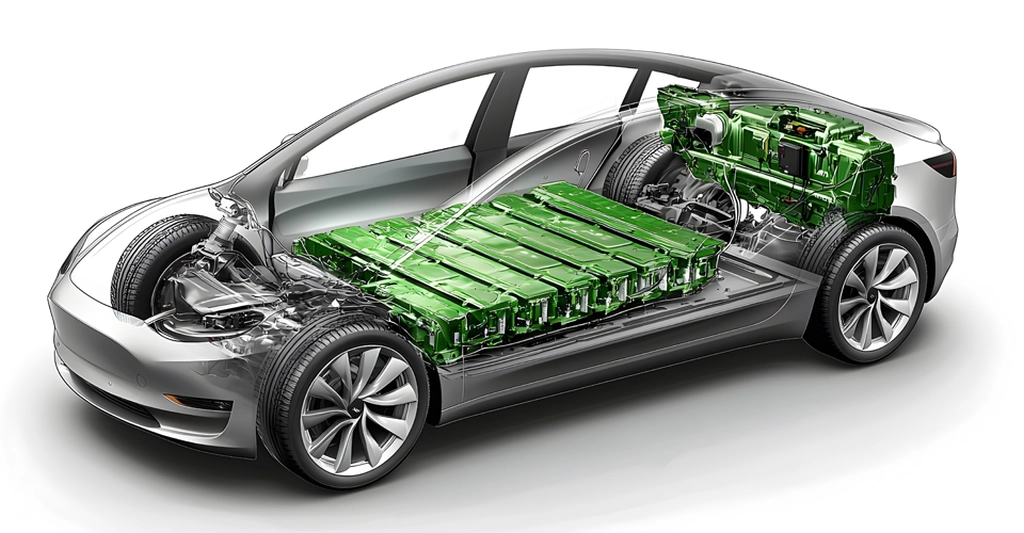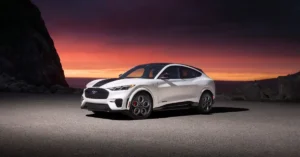One of the most common concerns people have when switching to electric vehicles (EVs) is the lifespan of the battery. You’ve probably heard someone say, “The battery won’t last long,” or “What happens when it dies?” But here’s the reality: EV battery tech has evolved rapidly and it turns out these fears are mostly outdated.
Recent studies show that most EV batteries can easily outlast the typical life of a petrol-powered car. Not only are they built to last, but with proper care, they can stay healthy for decades. Let’s explore what the data says, what affects battery longevity, and how you can ensure your EV stays reliable for the long haul.
How Long Do EV Batteries Really Last?
According to new research from global telematics provider Geotab, modern EV batteries degrade at an average rate of just 1.8% per year. In simple terms, that means you lose a small portion of the battery’s original driving range every year but only a little.
Let’s say your EV starts with a 60-kWh battery. After 5 years, you might have about 55–56 kWh of usable capacity remaining. And even after 20 years, many batteries still retain around 64% of their original capacity. That’s enough for most drivers’ daily needs.
This is good news not just for private car owners, but also for businesses and fleet managers looking to switch to electric. It confirms that EVs are not just eco-friendly they’re built to last.
Battery vs. Petrol Car: Who Wins?
In terms of longevity, electric cars now rival petrol-powered ones. A recent study based on 300 million vehicle records in the UK found that battery-electric vehicles (BEVs) have an average lifespan of 18.4 years roughly equal to traditional internal combustion engine (ICE) vehicles.
But here’s the kicker: over their lifespan, EVs often rack up more kilometres. In fact, BEVs have been found to travel over 200,000 km on average, often more than their petrol counterparts. This data flips the old narrative on its head EVs are not only cleaner but can be even more durable over time.
What Causes Battery Degradation?
Like all batteries (including the one in your phone), EV batteries naturally lose capacity over time. But this process is slower than most people expect and depends on several key factors:
1. Temperature Extremes
Hot climates accelerate chemical reactions in batteries, which can increase degradation. Cold weather, on the other hand, can temporarily reduce battery performance but typically has less long-term impact. Most EVs come equipped with thermal management systems to keep battery temperature within a safe range.
Tip: Park in shaded areas when possible and avoid charging in direct sunlight.
2. Charging Habits
Frequent use of DC fast charging generates more heat and puts stress on the battery. While it’s convenient, using it too often can shorten battery life.
Tip: Use Level 2 charging (home or public chargers) for daily charging, and save fast chargers for occasional use.
3. State of Charge (SOC) Practices
Keeping your battery charged between 20% and 80% is generally considered ideal especially for NMC (nickel manganese cobalt) and NCM (nickel cobalt manganese) batteries. Overcharging or deep discharging can wear out the battery more quickly.
Tip: Avoid keeping your EV plugged in at 100% charge for extended periods unless you’re about to drive.
Are Battery Failures Common?
Not at all. Battery failure in modern EVs is extremely rare. One study of over 10,000 EVs found that the failure rate of high-voltage batteries is less than 0.5%.
That’s lower than the failure rate of many internal combustion engine components. Think of how often petrol cars need replacements for clutches, timing belts, water pumps, and fuel injectors. EVs eliminate many of these moving parts and that means fewer chances of things going wrong.
What About Battery Replacement Costs?
Yes, replacing an EV battery can be expensive but most drivers will never need to. Nearly all new EVs come with battery warranties lasting 8 to 10 years or up to 160,000 km. And with proper maintenance, the battery may outlive the car itself.
There’s also a growing market for second-life applications like repurposing old EV batteries for home or commercial energy storage. Battery recycling and reuse are becoming more viable every year, helping to close the loop on battery life and environmental impact.
How to Extend Your EV Battery Life
Want to get the most out of your EV? Follow these practical tips:
- Avoid full charges or deep discharges. Keep your SOC between 20% and 80%.
- Limit use of DC fast chargers.
- Keep your EV parked in cooler areas, especially during summer.
- Use pre-conditioning features to warm or cool your battery before driving.
- Keep up with software updates manufacturers often improve battery management via firmware.
- If storing your car for long periods, leave the battery at around 50% charge.
The Big Picture: Why This Matters
The more we understand how long EVs last, the easier it is to make informed decisions. Battery longevity means better resale value, lower lifetime costs, and a more confident switch away from petrol vehicles.
It also matters for environmental reasons. If EVs can last 15–20 years or more, that means fewer cars produced, fewer batteries replaced, and more efficient use of resources. And when battery recycling systems scale up, we’ll reduce the need to mine rare materials like cobalt and nickel.
Final Thoughts
EV battery concerns are quickly becoming myths of the past. Today’s electric vehicles are not only cleaner and quieter they’re lasting longer and going farther than many people ever imagined.
Whether you’re driving 10,000 km a year or managing a commercial fleet, an electric vehicle can serve you reliably for well over a decade, especially when well cared for.
Want to Know How Long Your EV Battery Will Last?
At MotorHub, we connect you with trusted service centres that specialise in electric vehicle maintenance, diagnostics, and battery health checks. Whether you’re planning to switch to electric or already own an EV, we’ll help you get the most out of every charge.
Book your EV service today through MotorHub and drive into the future with confidence.



